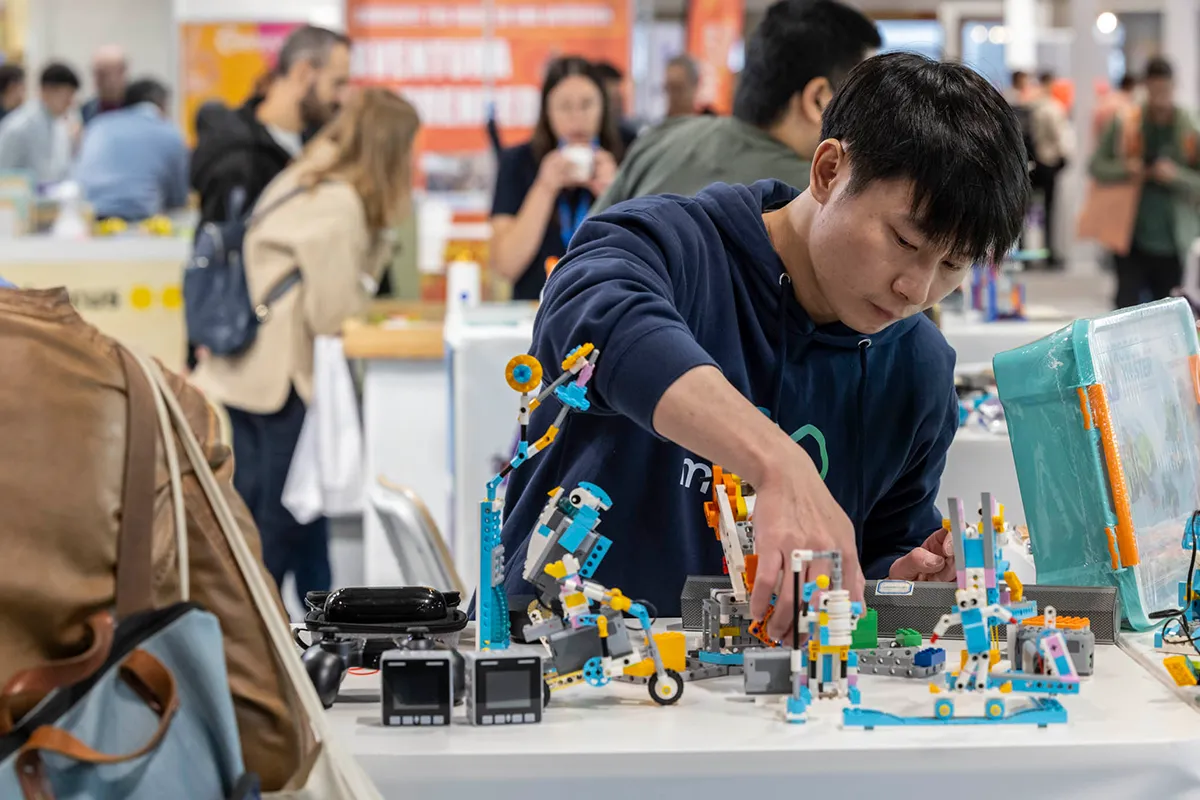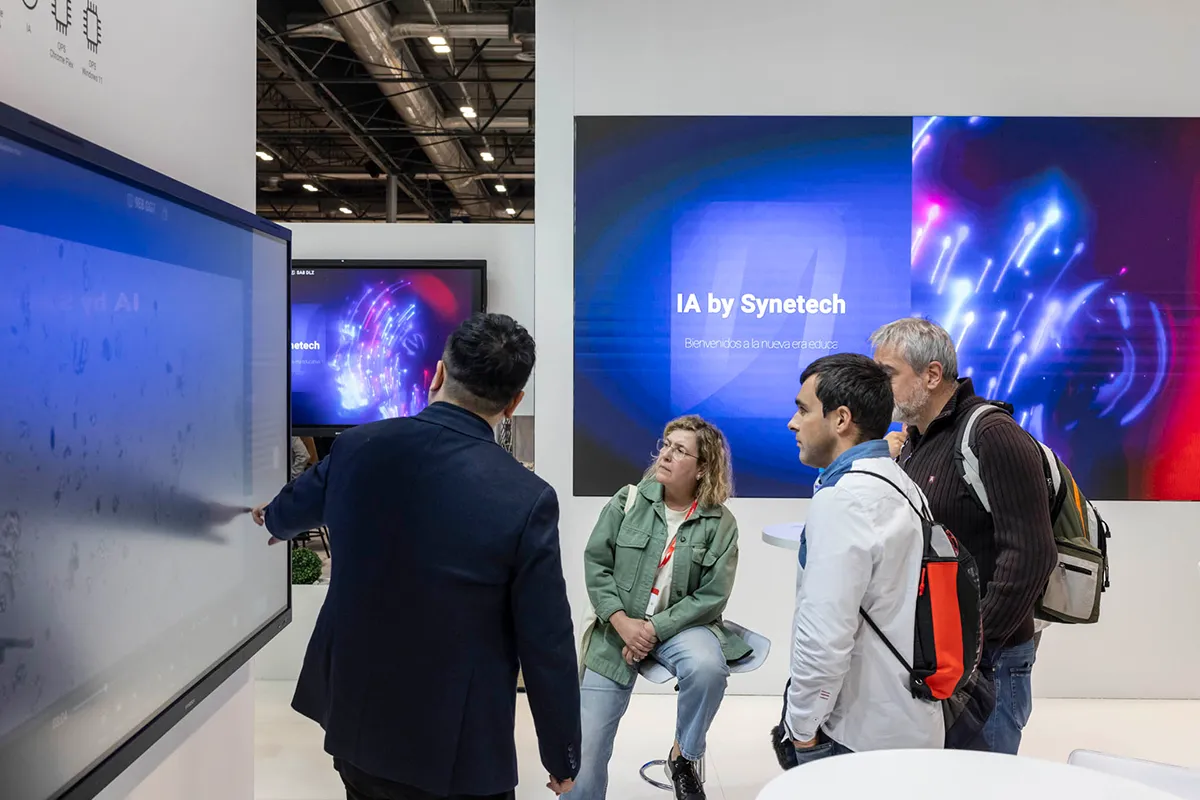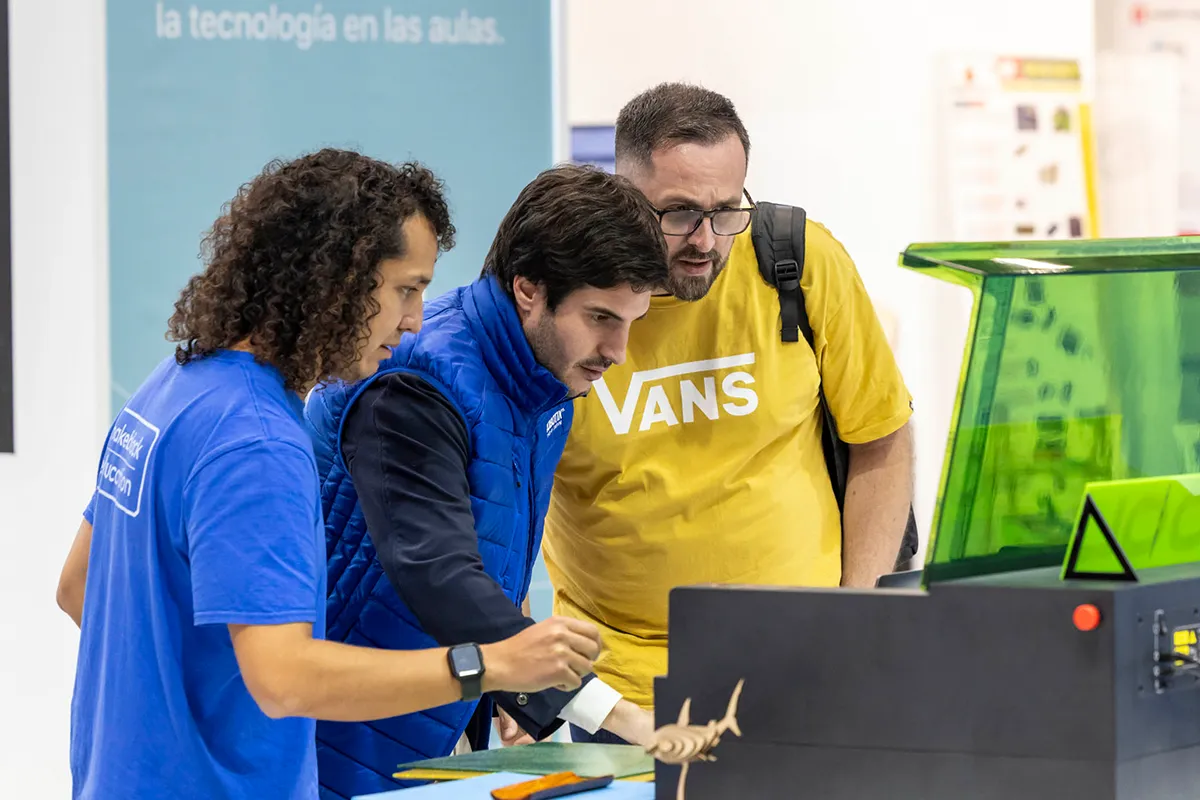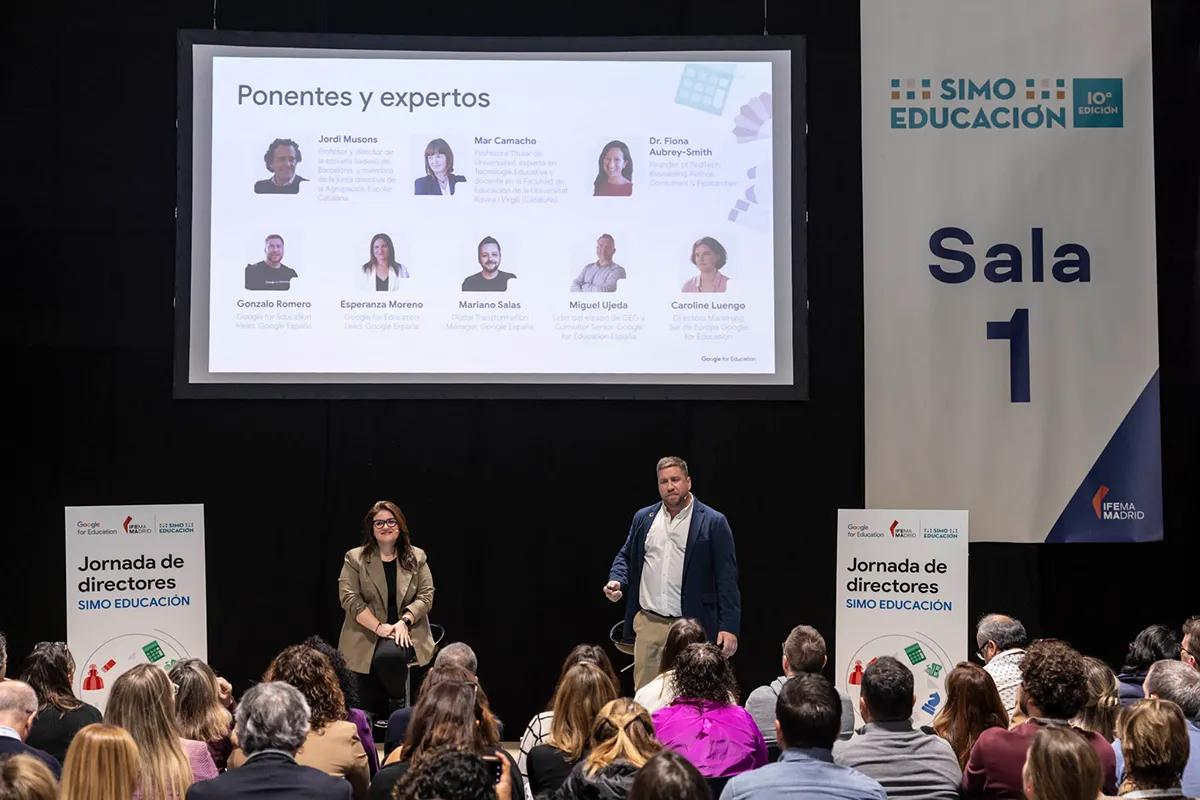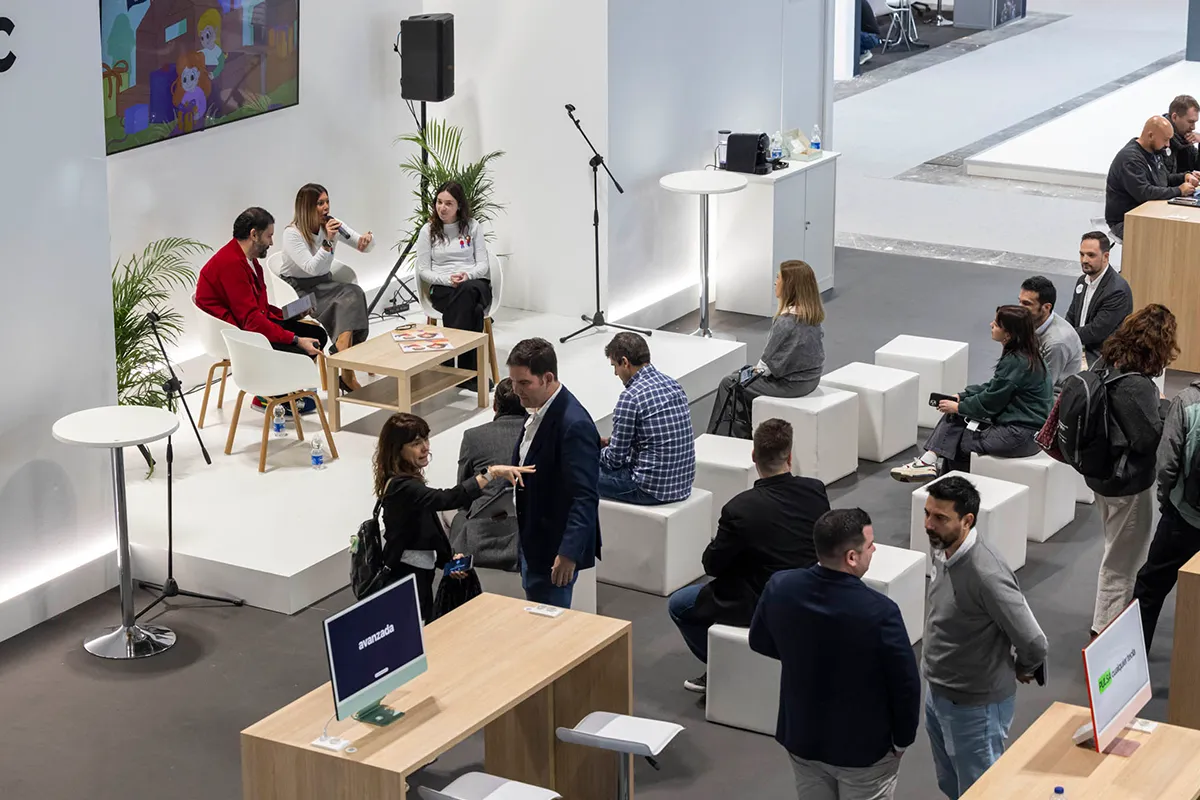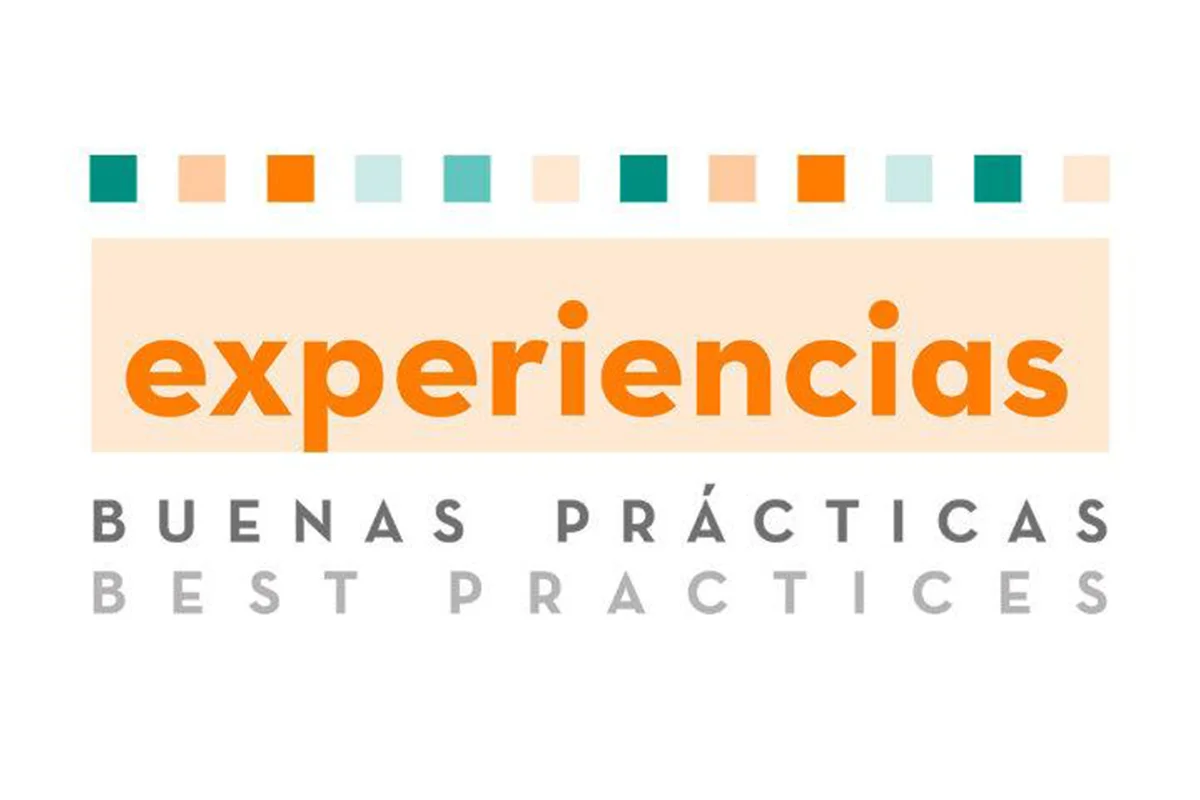
Experiencias Educativas, the support for innovation in the classroom
SIMO EDUCACIÓN 2025, the event for technology and educational innovation, invites teachers to showcase transformative experiences. Organised by IFEMA MADRID and Educación 3.0, the 13th Educational Innovation Awards highlight practices involving technology, AI, sustainability, inclusion, and active methodologies.
Thirty-five experiences have been selected to be exhibited at the fair and compete for the awards of “Best Innovative and Technological Teaching Experience” and “Best Innovative Experience” The event will take place from 28 to 30 October 2025 in Pavilion 5 at IFEMA MADRID.
The selected Educational Experiences, by category, are:
- EF Ministerio del Tiempo, by Ernesto Bautista Santurino Díaz at CRA Villas del Tajo (Toledo): A gamified project integrating Physical Education, history, and active methodologies with technology and AI.
- Igniting the Spark of Learning: CuatroCes and Spark as Drivers of Educational Transformation, by Carolina López Santos at Engage International School (Madrid): An educational model promoting Curiosity, Creativity, Critical Thinking, and Communication through real, student-centred projects.
- Lola, the Accent is Your Treasure, Never Lose It, by Francisco Manuel Gonzalez Gonzalez at CEIP Nuestra Señora de la Soledad (Badajoz): A Service-Learning experience applying the Equality Plan with active methodologies, adaptable and socially impactful in the school.
- Objective Euskelec 2025 – Nothing Stops Us!, by Raquel Rodríguez López at IES Galileo and CIFP Juan de Herrera (Valladolid): Collaborative project in Valladolid to design and build electric vehicles, integrating sustainability, inclusion, and communication.
- If You Drive, Reason, by Rubén Estévez Garaluz at IES Juan Antonio Fernández Pérez (Melilla): Gamified trigonometry project using AI and activities on traffic signs and road safety to promote responsible driving in Melilla.
- Traveling Through Spain for Secondary Education, by Félix Calero Sánchez at Colegio Árula (Madrid): Educational trivia-style game in Excel created by students to learn Spanish geography in a fun way, using AI and digital tools.
- Greenhouse 3.0, by Marc Gudel Téllez at Escola Palma de Mallorca (Barcelona): Automated greenhouse with micro:bit to promote science, technology, and sustainability in 6th grade.
- Flood Prevention in the Digital Age, by Soraya Pulido de Paz at CEIP Comuneros de Castilla (Ávila): Robotics project to prevent floods, fostering digital skills and social responsibility.
- Our A.I. City: Rediscovering the City Through Artificial Intelligence in Early Childhood, by Mario Alcarazo Cañete at Base International School (Madrid): Early Years project using AI to transform urban drawings, promoting creativity, reflection, and digital skills on a collaborative map.
- San José Band, by Rafael del Campo Merino at Colegio San José – FEyE (Ciudad Real): Digital, cooperative music project that strengthens cultural and social skills.
- Interdisciplinary Video Game Development Project, by Pedro Monedero Cariñena at IES Violant de Casalduch (Castellón): Secondary education project combining technology and creativity to create educational video games, promoting STEAM and teamwork.
- Project-Based Learning Applied to Economics and Career Guidance, by Jesús Fernández-Cid Roman at IES Ortega y Gasset (Madrid): Interdisciplinary Bachillerato project integrating gamification, SDGs, vocational guidance, and business management.
- Learning AI with AI, by Christian Velasco Gallego at Universidad de Nebrija (Madrid): AILearn is a web app that facilitates basic AI learning, used in Computer and Biomedical Engineering, with plans for expansion.
- ARALAR Project: Combating Gambling Risks Through Technological Innovation, by Miguel Ángel Moscoso Elía at Salesianos Pamplona (Navarra): First-year vocational students created TIMOBET, an educational betting simulator combining technology and critical reflection on gambling risks.
- Comprehensive Education Through Service Learning in Final Degree Projects, by Adriana Dapena Janeiro at Universidade da Coruña (A Coruña): Computer Engineering project integrating transversal skills and social commitment in Final Degree Projects with an inclusive and sustainable approach.
- Technology with Purpose: A Humanist Vision of Technology Use, by Cristina Ruiz at Colegio Juan de Lanuza (Zaragoza): Uses active methodologies to foster ethical and creative tech solutions, culminating in an exhibition.
- Coldplay Barcelona, by Francisco Pérez García at Institut Pompeu Fabra (Barcelona): 4th-year ESO students create musical visualisers and sustainable wearables, combining technology, art, and digital skills through active methodologies.
- Beire R3: Remote and Real Science from Rural Areas, by Alicia Ramos Almodóvar at CPEIP Beire (Navarra): Students aged 4 to 12 in a rural STEAM classroom engage live with real laboratories, promoting accessible and innovative science.
- Gamification Flipped Classroom, by Rodrigo Pérez Fernández at Escuela Técnica Superior de Ingeniería Naval (Madrid): An immersive project where students explore ocean systems through interactive challenges, promoting critical thinking and autonomous learning.
- Journey to the ODS Stories, by Guillermo Buedo Fernández at CEP Primer Marqués del Turia (Valencia): A 6th-grade project fostering reading and the Sustainable Development Goals through PBL, gamification, and cooperative work in a literary adventure.
- Operation ‘In the Storm’, by Mario García Dominguez at CIDE (Palma de Mallorca): Students investigate the causes of World War II in a gamified experience with AI, integrating history, ethics, and critical thinking.
- Beyond Talent: Educating from Potential and Inclusion, by Eduardo Lazaro Martínez at Instituto Educativo IESTEM (Gipuzkoa): Secondary and Bachillerato students reuse obsolete technology to create educational devices, promoting personalised, sustainable, and creative education
- Turtles’ Dream / El sueño de las tortugas / Il sonno delle tartarughe, by Sergio Almarcha Riquelme at IES Miguel Hernandez (Alicante): An international multidisciplinary project that unites students through PBL and UDL to raise awareness about ecosystem protection using ICT and AI.
- More Life, Less Social Media, by Ricardo Aguado Vallejo at Colegio Juan de Lanuza (Zaragoza): A project with secondary students encouraging a week without smartphones to improve wellbeing, critical reflection, and real communication.
- ALESIA: AI Sign Language Interpretation Assistant, by José María Pérez Ramos at IES Alonso de Madrigal (Ávila): An AI assistant translating spoken Spanish into Sign Language in real-time, promoting inclusion and educational innovation.
- Interactive and Inclusive Museum ‘LATIDOS DE PIEDRA’, by Esther Aceituno Arjona at IES San Reino (Jaén): An interdisciplinary project restoring historic buildings through accessible 3D models in multiple formats for the whole community.
- Inclusive Mentoring: Developing Metacognition Through Robot Programming, by Inmaculada Concepción Enríquez de Luna Rodríguez at IES Pedro Antonio de Alarcón (Granada): Inclusive mentoring uses robotics to empower students with intellectual disabilities, boosting self-esteem and fostering inclusive education.
- Sustainable Startup Fair, by Cristina Parra Fernández at Colegio Nuestra Señora de la Consolación Burriana (Castellón): Sixth-grade students create a renewable energy company to promote sustainability, entrepreneurship, and teamwork.
- ECOFLOCK, by Rebeca Madero Beviá at Colegio Diocesano Santa María Nuestra Señora (Sevilla): Fourth-year ESO students design an aquatic drone to tackle marine pollution, integrating sustainability, technology, and active methodologies.
- Scientific and Social Awareness from the Dunes, by Marienca Lorenzo De Armas at Colegio Arenas Atlántico (Las Palmas): First-year Bachillerato students study the dune ecosystem and sustainable tourism in Maspalomas through projects, field trips, and cooperative work.
- Smart Buildings: Improving Energy Efficiency in Schools with Innovative Technologies, by Hugo Potau Ramírez at IES El Rincón (Las Palmas): Students design technological solutions for energy efficiency and sustainability using sensors and active methodologies.
- GPTs in the Classroom: A Personalized, Ethical, and Transferable AI Experience, by Carlos Sánchez Barbero at IES Fray Diego Tadeo González (Salamanca): Generative AI ecosystem with customized GPTs promoting ethical, critical, and accessible AI use in education.
- GreenTech – Pest Detector, by Noelia Real Parra at C.C. Apostolado del Sagrado Corazón de Jesús (Cantabria): Students develop a device to detect disease-carrying insects, integrating sensors, AI, and drone technology.
- MoTICvate: Creating Inclusive Activities Through Generative AI, by Elena Moreno Fuentes at Centro Universitario Sagrada Familia (Jaén): Uses AI to help teachers create inclusive activities based on Universal Design for Learning (UDL).
- LiterarIA: When a Classic Comes to Digital Life, by Ana Torrado Revilla at C.E. La Merced y San Francisco Javier. Jesuitas (Burgos): Students create animated avatars of literary characters, producing videos instead of traditional summaries, enhancing creativity, digital literacy, and collaboration.






